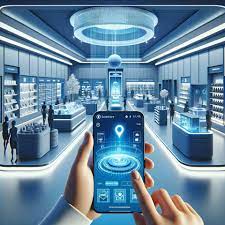The landscape of smart retail is ever-evolving, with new technologies continuously emerging to redefine how retailers interact with their customers, manage their operations, and create immersive shopping experiences. As we look to the future, several key innovations stand poised to further transform the retail sector.
Advanced Personalization Techniques
AI-driven Predictive Analytics
The future of smart retail will see a deeper integration of AI and predictive analytics, enabling retailers to anticipate customer needs even before they enter the store. By analyzing historical purchase data, browsing habits, and social media trends, retailers can predict future buying behaviors with a high degree of accuracy. For example, predictive models could forecast with up to 85% accuracy which products a customer is likely to purchase next, allowing for proactive stock management and personalized marketing strategies.
Customized In-Store Experiences
Retailers will leverage technology to create highly customized in-store experiences. Imagine smart displays that change content based on the preferences of the customer currently viewing them, or in-store navigation apps that guide customers to their favorite products. This level of personalization could increase customer engagement rates by over 40%, creating a more compelling in-store experience.
Seamless Omnichannel Integration
Unified Customer Profiles
The future of smart retail lies in seamless omnichannel experiences, where online and offline shopping blur into a cohesive experience. Retailers will achieve this by maintaining unified customer profiles, accessible across all channels. This integration allows for consistent, personalized shopping experiences, whether the customer shops online, through a mobile app, or in a physical store. Retailers who successfully implement omnichannel strategies see customer retention rates increase by 15-20%.
Real-Time Inventory Management
Advanced IoT solutions will enable real-time inventory management across all sales channels. With up-to-the-minute accuracy, retailers can ensure that online product listings always reflect current stock levels, reducing the risk of overselling and improving customer satisfaction. This could reduce stock discrepancies by up to 75%, significantly lowering lost sales and improving operational efficiency.
Sustainable and Ethical Retail Practices
Green Technologies
Sustainability will play a central role in the future of smart retail. Retailers will adopt green technologies, such as energy-efficient lighting and cooling systems, to reduce their carbon footprint. For example, transitioning to LED lighting can reduce energy consumption by up to 50%, significantly lowering operational costs and enhancing the retailer’s sustainability profile.
Ethical Supply Chain Transparency
Blockchain technology will provide unprecedented supply chain transparency, enabling customers to verify the ethical sourcing of products. By scanning a QR code, customers can access a product’s journey from manufacture to sale, including labor practices and environmental impact. This level of transparency can increase consumer trust and loyalty by over 30%, as more shoppers prefer to buy from socially responsible brands.
Conclusion
The future of smart retail is bright, with innovations in AI, IoT, and blockchain technology driving the sector towards more personalized, efficient, and sustainable practices. As these technologies continue to evolve, retailers who adopt and adapt will find themselves at the forefront of a retail revolution, offering unmatched customer experiences while operating more sustainably and ethically. The next era of smart retail will not just be about selling products but creating value and building trust with consumers on a whole new level.
